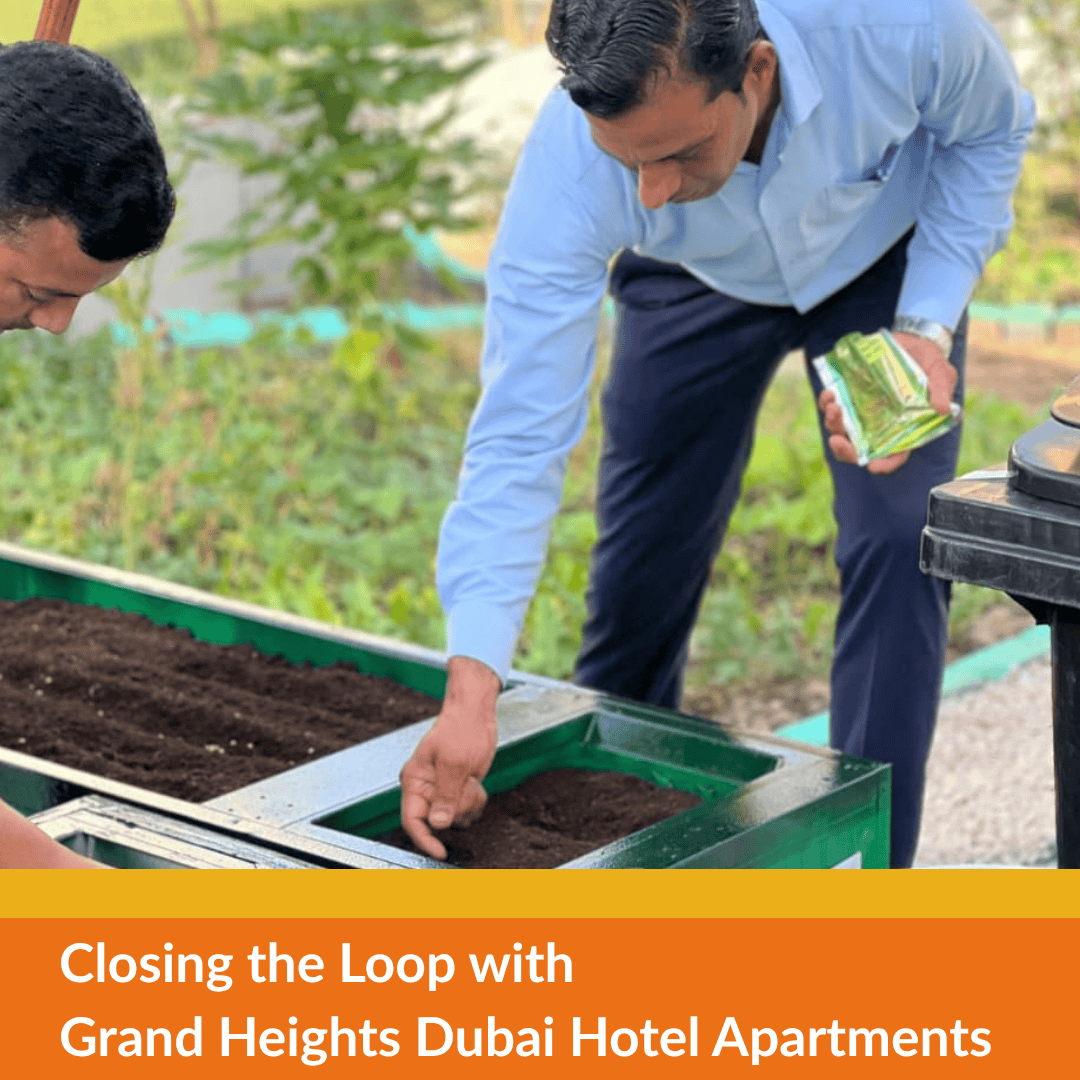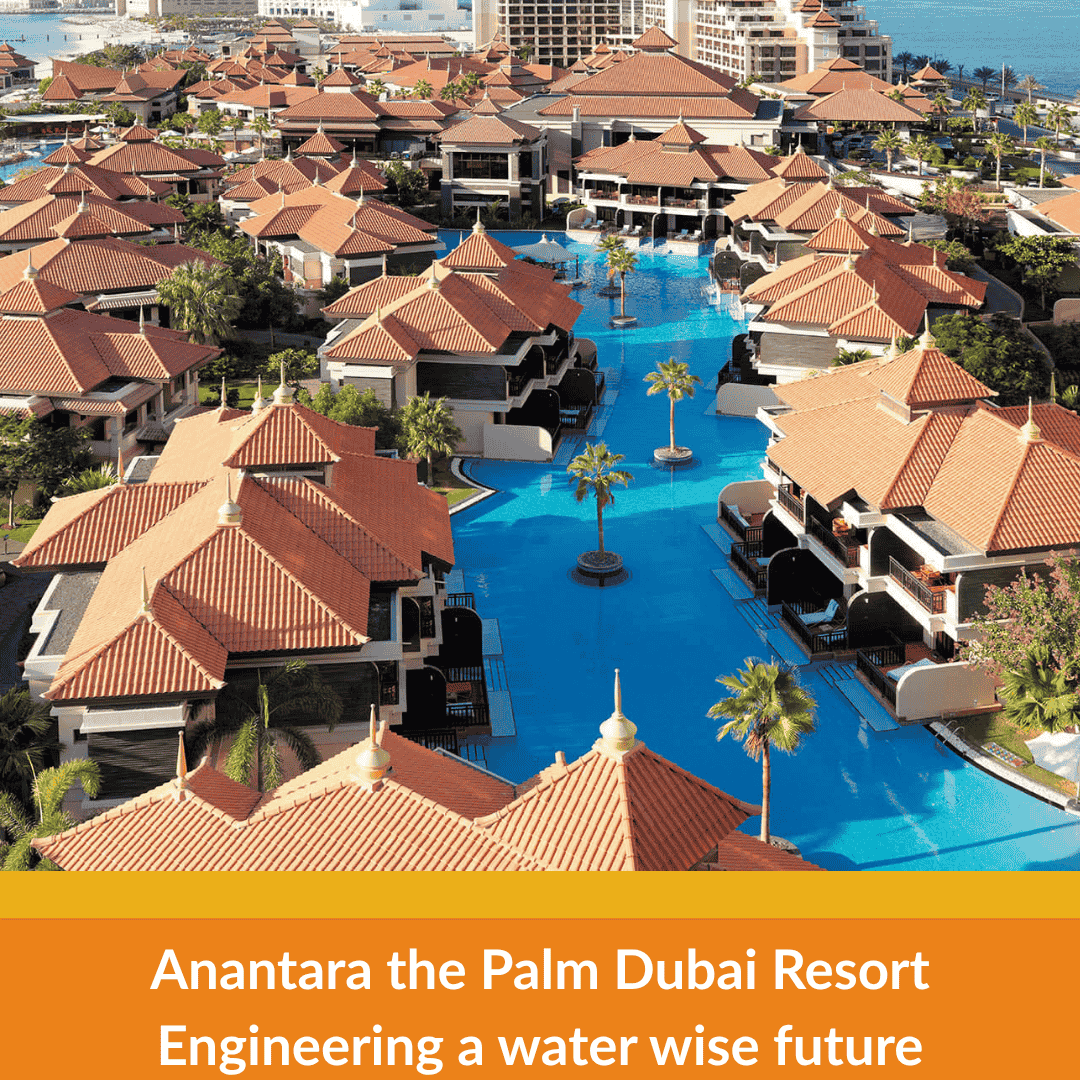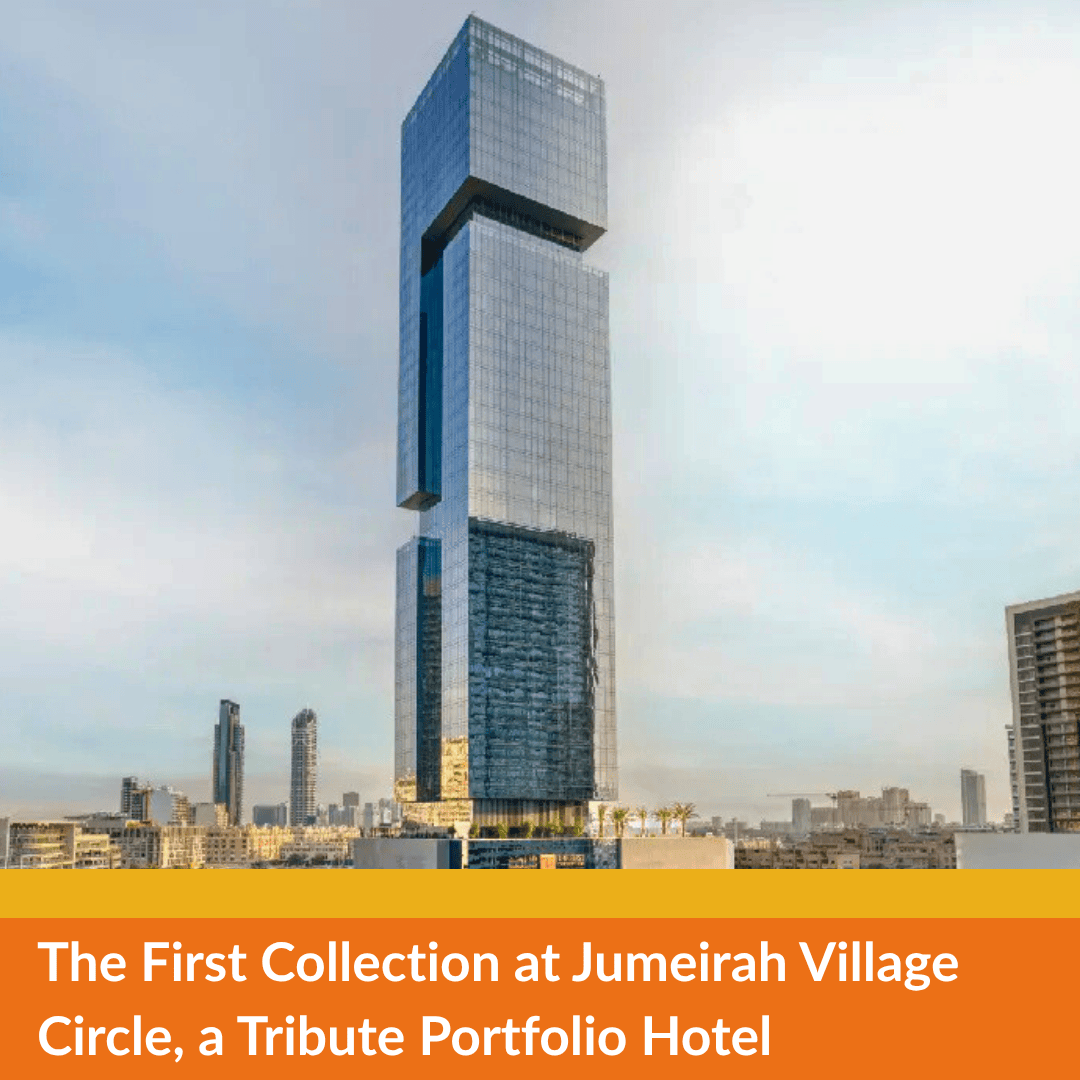The team at Grand Heights Dubai Hotel Apartments are taking sustainability seriously – and doing it their way. In May 2025, they launched an closed-loop in-house project focused on reducing waste and reusing resources right on-site: creating organic compost fertiliser.
Back in April 2025, they kicked off their first water-saving initiative by growing watermelons on-site using water collected from the building’s AC units. This clever use of condensate water is saving more than 60,000 litres of water every year – a simple idea with big impact. Read more about the initiative.
These efforts are helping the hotel stay true to its green goals while keeping things local, practical, and impactful.
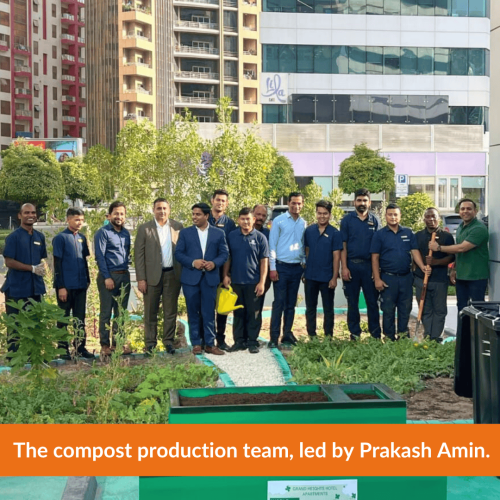
Cross-Department Collaboration
Although the Engineering and F&B departments have distinct roles and operate in very different ways, they came together on this project with a shared goal of reducing waste and supporting sustainability.
 The goal?
The goal?
Convert wood waste, garden trimmings, and even leftover coffee grounds from the in-house Risen Café into rich, organic compost.
Led by Engineer Prakash Amin, the waste is collected from the various departments and processed by the engineering team, who manage the composting operations on a dedicated rooftop space that maximises natural sunlight for efficient breakdown.
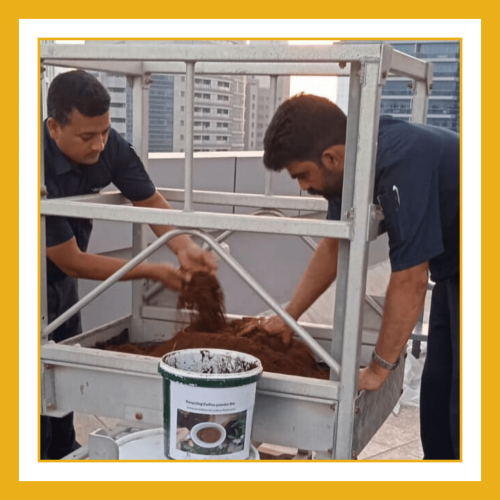
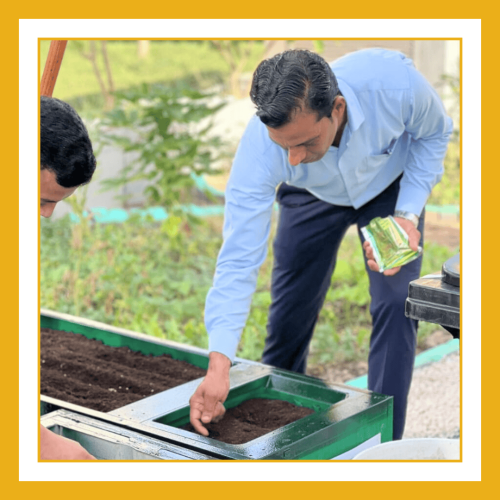

 Impact
Impact
Marking a promising start toward the project’s long-term sustainability objectives, over the May to June period, the hotel saved ~180 kg of organic waste from heading to landfill:



 The result?
The result?
In just its first month, the initiative produced 72 kilograms of compost fertiliser. By the end of June, the total output had increased to 175 kilograms.
This equates to roughly 0.71 kg of coffee waste, 0.13 kg of wood waste, and 0.17 kg of garden waste required to produce each kilogram of compost.

It’s a full-circle project that cuts waste, reduces reliance on external fertilisers, and brings fresh produce closer to home.
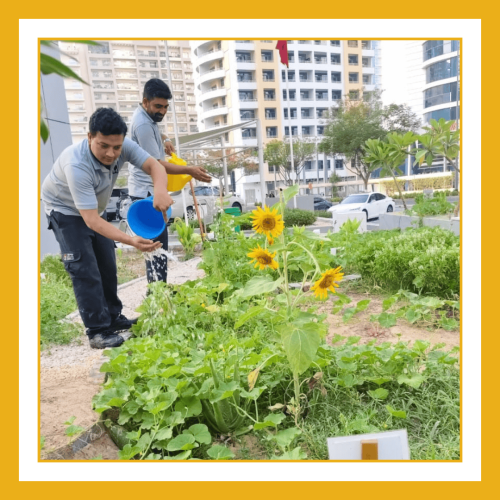
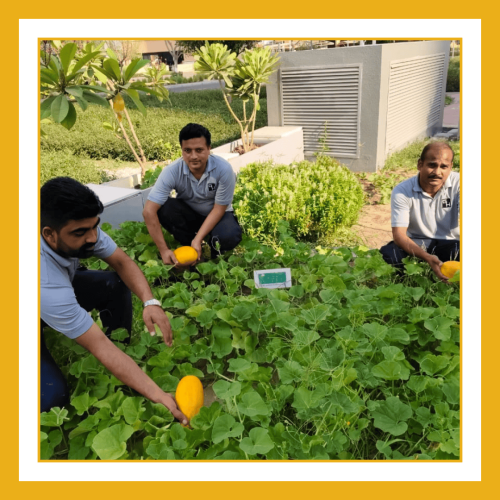
At Sustainability Kiosk, we greatly value when hotels take proactive steps and reach out to us with their sustainability initiatives. Grand Heights is demonstrating that meaningful sustainability doesn’t always require large investments – just creativity, collaboration, and a willingness to reimagine waste. As the hotel continues to grow, its commitment to hands-on, circular solutions is paving the way for a more responsible, regenerative hospitality model.
Grand Heights is part of the The First Group Hospitality, a growing portfolio of hotels committed to sustainable hospitality. Across the group, there’s a strong push for in-house innovation, waste reduction, and community impact. TFG hotels are encouraged to think big but act local, and Grand Heights Hotel Apartments is doing exactly that.
Read through our other case studies to learn more about what other hotels in the Middle East are doing to reduce their emissions.
Has your hotel got an innovative initiative worth sharing? Reach out to us at info@sustainabilitykiosk.com
